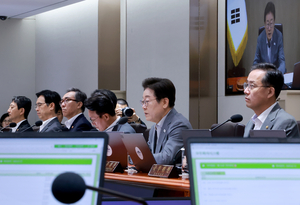## Rephrased Summary: Major Overhaul of South Korea’s Commercial Act Redefines Board Duties
In a significant move to update corporate governance, South Korea’s Cabinet—led by President Lee Jae Myung—officially approved sweeping amendments to the Commercial Act on July 15, 2025. With bipartisan backing from the National Assembly, which passed the bill on July 3, this legislative change redefines the fiduciary duties of corporate directors, compelling them to serve not just the company itself but the collective interests of all shareholders.
Previously, corporate board members in South Korea were only legally obliged to act in the interest of the corporation as a whole, with little explicit obligation toward shareholders. This framework stood out globally, as most developed nations—including the U.S., U.K., and Japan—legally require directors to consider shareholder interests. The revised law brings Korea’s legal standards in line with international norms and aims to strengthen shareholder rights.
### Major Changes Introduced
The cornerstone of the reform is the expansion of directors’ fiduciary responsibilities to include all shareholders, a long-demanded revision by investor advocates. The goal is to curb long-standing practices, especially within the country’s powerful family-owned conglomerates (chaebol), where controlling shareholders often advanced their own interests at the expense of minority shareholders. By addressing this issue, policymakers hope to close the persistent “Korea Discount”—a term referring to the undervaluation of Korean stocks due to concerns over opaque governance and insufficient shareholder protections.
Another important change restricts voting power in the appointment and dismissal of audit committee members. Starting one year after the law’s promulgation, the voting rights of the largest shareholder and affiliated parties will be capped at 3% for these decisions. This is designed to enhance the independence of audit committees and reduce undue influence from dominant shareholders.
### Legal Enforcement and Timeline
The reform takes effect immediately following presidential promulgation, underscoring the government’s urgency in implementing stronger shareholder protections. Furthermore, by 2027, all publicly traded companies will be required to support electronic voting systems for shareholder meetings, a shift aimed at facilitating greater participation from individual and minority investors.
### Historical Context and Global Comparisons
South Korea’s legal tradition has long lagged behind its global peers in terms of recognizing directors’ duties toward shareholders. In contrast, U.S., U.K., and Japanese corporate laws clearly establish these fiduciary obligations and allow for legal recourse when they are violated. South Korean courts have acknowledged such duties previously, but only in limited and often ambiguous cases of conflicts of interest. The revised law now formally defines these responsibilities, giving investors clearer legal ground to hold board members accountable.
### A Push for Corporate Reform and Market Confidence
The reforms are part of a broader strategy by President Lee’s administration to modernize Korea’s capital markets, improve corporate accountability, and attract more foreign investment. Officials argue that more transparent governance and stronger protections for minority shareholders will boost investor trust, enhance corporate performance, and reduce the Korea Discount that has plagued the nation’s equity markets for decades.
### Industry Reactions and Concerns
Although welcomed by investors and governance advocates, the business community has raised concerns that the revised duties could create new complexities. Critics warn that the law may lead to protracted legal disputes, delayed decision-making in boardrooms, and heightened susceptibility to activist shareholder campaigns and hostile takeovers. In particular, the requirement that board members act in the interest of “all shareholders” has raised fears of vague legal interpretation.
To balance reform with stability, government officials have promised supplemental guidelines and anticipate that the courts will help define the boundaries of board responsibilities over time. Legal experts suggest that the increased litigation risk may be offset by the long-term benefits of better accountability and value creation.
### Political Milestone in Divided Times
The law’s passage represents a rare moment of political cooperation in South Korea’s often divided legislature. Notably, a similar bill was vetoed earlier in March 2025 by then-acting President Han Duck-soo. This time, President Lee’s administration prioritized the reform and pushed it through swiftly, signaling its commitment to financial and corporate governance modernization.
### Broader Social and Economic Impact
Beyond the stock market, the reform may usher in broader societal changes. By weakening the grip of chaebol families over corporate decision-making and strengthening institutional checks, the law is expected to discourage corruption and self-dealing. It could also lead to more equitable wealth distribution through fairer corporate practices and higher returns for minority shareholders.
Additionally, the reform is likely to encourage more participation from global institutional investors who have traditionally been wary of Korea’s corporate governance risks. By reducing these longstanding hurdles, Korea hopes to integrate more deeply into global capital markets and set the stage for future reforms.
### Next Steps and Long-Term Outlook
With the law now in place, the next phase will involve real-world implementation. Regulators, particularly the Financial Supervisory Service (FSS), are expected to issue formal guidance in the near term. Over time, judicial decisions will play a crucial role in establishing legal precedent and clarifying the scope of the newly defined duties.
In conclusion, the revision of South Korea’s Commercial Act marks a transformative shift in the country’s corporate governance landscape. By mandating that directors prioritize the interests of all shareholders and by limiting the control exercised by dominant shareholders in audit processes, the legislation moves Korea closer to global best practices. If effectively enforced, it has the potential to elevate market integrity, investor confidence, and sustainable economic growth for years to come.


